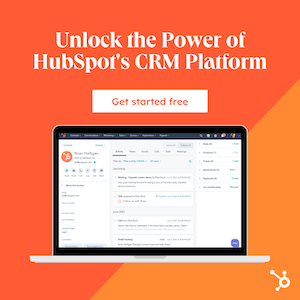Quality CRM software can be of immense help to growing your business. It can help you to manage your leads and your business from a single dashboard.
A CRM software or Customer Relationship Management software can take care of almost every aspect of your business to make sure that you can make your team a lot more productive while working on a project.
If you have a limited budget and can’t afford an expensive CRM software plan, you can go for the free plans of the top CRM solution providers like HubSpot, Salesforce, etc.
In this article, we will have a look at the top CRM software statistics that you need to know.
Important CRM Data.
| CRM market size | $128.97 billion by 2028 |
| Average ROI | $8.71 for each dollar spent |
| User company size | 90% of companies with 10+ employees |
| Salesforce market share | Over 20% |
| CRM improves productivity | By 8% to 14% |
1. CRM Market will Be $128.97 billion by 2028
According to Fortune Business Insights, the CRM technology market will touch $128.97 billion by 2028. It’s a massive jump from the valuation of $52.64 billion in 2020.
Also, as more small businesses move towards digitization, CRM business is only supposed to grow in the upcoming year.
2. Organizations usually invest in CRM within the first five years.
According to Capterra, the majority of organizations invest in CRM technology within the first five years of their inception.
After that, it’s used 80% by their sales team, 46% by the marketing department, and 45% by their customer service department. CRM helps all these different departments with seamless integration and effective communication.

3. The average ROI on CRM is $8.71 for each dollar spent
According to Nucleus Research reports, CRM delivers an average ROI of $8.71 for each dollar. This number may rise to $30.48 in the upcoming years as more businesses seek robust management and automation.
So if you’re looking to invest in any business software, CRM should be your top priority because of its high ROI.
4. More than 90% of the companies with 10+ employees use a CRM.
According to Grand View Research, more than 90% of the companies with ten or more employees use CRM software. The deployment can be on-premise or cloud-based, per the company’s requirements.
In addition, it includes various features like contact management, sales force automation, lead management, campaign management, and more.
5. CRM technology improves business agility
According to Zendesk, CRM technology has helped companies become more agile. It has helped them make better business decisions, be proactive, and work smarter.
With CRM in place, they can automate tasks and get more insights into their customers. As a result, it helps them serve their customers better and improve the overall customer experience.
6. Sales reps spend around 18% of their time in CRM.
According to Forbes, a sales rep spends about 18% of their workday on CRM. It includes logging calls, creating accounts, managing opportunities, and more.
The remaining time is spent on actual selling, the most critical activity for any sales rep. Also, teams might be spending around 35% of their time on tasks unrelated to sales.
7. Around 68% of marketing leaders say CX is their competitive edge.
According to Salesforce, around 68% of marketing leaders said CX (customer experience) is their leading competitive edge.
They know the importance of happy customers and strive to give them the best experience possible. To achieve this, they use various CRM tools to interact with their customers and get feedback.
8. CRM will be the most significant “spending area” for enterprise
According to the reports of Gartner, CRM will be the most significant “spending area” for enterprise companies in 2022 and upcoming years. This is because more and more businesses realize the importance of CRM and its various benefits.
As a result, organizations are willing to spend more on CRM technology regardless of the company size.
9. AI-based CRM can deliver an extra revenue of $1.1 trillion in the upcoming time.
According to Salesforce, AI-based CRM can deliver an extra revenue of $1.1 trillion in the upcoming time.
AI allows you to automate various tasks like customer segmentation, lead scoring, and more. This way, you can focus on the more critical tasks and grow your business.
10. Around 64% of the companies say CRM is very impactful.
According to a survey by LinkedIn, around 64% of the companies said that CRM is very impactful and has helped them improve their business.
The main benefits include better customer communication, increased sales, and improved customer satisfaction. Sales reps using CRMs also showed a 17% higher job satisfaction.
11. Around 22% of sales professionals are unaware of CRM technology.
According to HubSpot, around 22% of sales professionals are unaware of CRM technology. It is a huge number considering the importance of CRM in sales and marketing.
Salespeople need to know about CRM to use it to their advantage. Also, around 40% of companies don’t use a CRM to streamline their business operations.
12. Most businesses want custom features on CRM.
According to Software Advice research, the most requested custom features of CRM are interaction tracking, pipeline monitoring, contact management, and bespoke scheduling.
Also, 18% of the businesses require custom pricing, while 16% need custom shipping tracking. These features are not available in the basic CRM packages.
13. Salesforce enjoys a significant market share of 20%
According to Spring Engage, Salesforce has the maximum market share of 20% in the CRM industry. With more than 73,000 employees, it’s the largest CRM company globally.
It was founded in 1999 and had been providing various CRM solutions to businesses of all sizes. The company made the trend of CRM technologies popular across multiple industries.
14. CRM plays a crucial role for CX
CRM plays a crucial role in CX or customer experience, according to Salesforce reports. It helps businesses interact with their customers and understand their needs.
As a result, companies can provide personalized experiences to their customers and build long-lasting relationships with this information. Also, the majority of the decision-makers believe CX is their most significant competitive edge.
15. Over 90% of companies already use databases for storing customer information.
According to GDMA reports, over 90% of companies already use CRM databases to store customer information. The rest of them are in the process of implementing it. It helps organizations keep track of their customers and understand their needs better.
Also, it helps reduce the risk of data loss and makes it easier to retrieve information. However, several companies still don’t have relevant ways to store this information.
16. Around 82% of organizations use CRM for sales reporting.
According to Grandview Research, around 82% of organizations use CRM for sales reporting. It helps them track the performance of their sales team and measure their success.
Also, it helps managers identify areas of improvement and take corrective measures. Additionally, CRM provides insights into customer behavior and trends, which helps businesses make better decisions.
17. Over 75% of decision-makers say they’re using more tech.
According to Zendesk, over 75% of decision-makers say they’re using more technology for customer support. It is because they believe it’s the most critical function in their organization.
With the help of CRM, businesses can provide better customer support and improve CX. Also, CRM helps reduce the cost of customer support by up to 30%.
18. 74% of the organizations using CRM say they have better access to customer data
According to Resco reports, 74% of the organizations using CRM say they have better access to customer data.
This information is crucial for understanding customers’ needs and providing them with the best possible experience. Also, it helps businesses make better decisions and improve their overall performance.
19. CRM improves productivity by around 8% to 14%
According to Nucleus Research, CRM improves productivity by around 8% to 14%. It is because CRM helps businesses automate various tasks and processes.
It also allows them to keep track of their customers and interact with them more effectively. Moreover, Several decision-makers claim to have a jump of 14.6% in productivity while using a mobile CRM.
20. CRM can boost sales by around 29%
According to Salesforce, CRM can boost sales by around 29%. It helps businesses automate their sales process and track their progress.
With the help of CRM, companies can identify their potential customers and target them with suitable marketing campaigns. Also, it helps reduce the time taken to close a deal by up to 50%.
21. Around 92% of companies believe CRM is essential for achieving goals.
According to Super Office reports, around 92% of the companies believe CRM is essential for achieving their goals. It helps businesses keep track of their customers and interact with them effectively.
Also, it helps improve customer retention and loyalty. Moreover, CRM provides insights that help companies make better decisions and achieve their desired results.
22. 47% of businesses believe CRM improves customer satisfaction.
According to Capterra, 47% of businesses believe CRM improves customer satisfaction. It is because CRM helps companies interact with their customers and understand their needs.
With this information, companies can provide better services and products that meet the needs of their customers. Also, CRM helps businesses build long-lasting relationships with their customers.
23. More than 75% of companies prioritize CRM.
According to HubSpot, more than 75% of companies prioritize CRM. Around 48% of business owners said they want to improve the efficiency of their sales funnel.
Moreover, 33% say they want to drive more revenue from existing and new customers as their priority. For achieving these aspects in business, companies are prioritizing CRM integration.
24. Around 81% of marketing executives use CRM from multiple devices.
According to the reports of OnePage Express, around 81% of marketing executives use CRM from multiple devices.
This helps them stay connected with their customers and quickly get the information they need. Also, it helps businesses save time and money by reducing the need for data entry.
25. By 2025, cloud-based CRM will be valued at around $3.5 billion.
According to Apps Runs the World reports, by 2025, cloud-based CRM will be valued at around $3.5 billion.
As a result, more and more businesses are moving to the cloud to store customer data. In addition, Salesforce already owns the 50% market share of the cloud-based CRM ecosystem.
26. Social media CRM is surging.
According to GWI, one out of four customers interacts with brands on social media. These customers need sales support quickly through social platforms.
Thus, social media CRM is surging to address this issue. It helps businesses interact with their customers on social media and understand their needs.
27. The demand for AI-based CRM is growing.
According to AiMultiple research, it’s shown that the overall interest in AI for CRM is overgrowing.
Since 2016, more companies have been looking into advanced tools that can help them automate complex data management. In addition, AI-based CRMs help businesses address omnichannel demands.
28. CRM helps track the omnichannel experiences
According to Salesforce, CRM helps track the omnichannel experiences of customers. It helps businesses understand how their customers interact with them across different channels.
With this information, companies can provide a consistent experience to their customers and build long-lasting relationships.
29. Around 52% of organizations say CRM could reduce the silos in customer data.
According to the reports of Super Office, around 52% of organizations say CRM could reduce the silos in customer data.
It is because CRM helps businesses store customer information in a centralized location. Also, it allows enterprises to share this information across different departments and teams.
30. The pandemic accelerated the CRM demand.
According to Salesforce, around 88% of the sales team found gaps in their current technology solutions during the pandemic.
In addition, 77% of the executives say their job has become more strategic than two years ago. Thus, they need a robust CRM to manage their complex operations.




